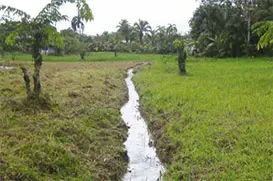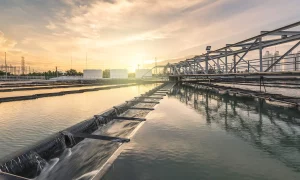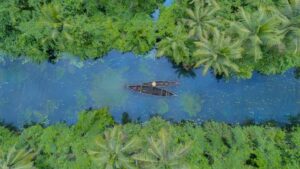Learning from experience: Conclusions from a knowledge management initiative
Sharing insights and experiences is critical for improved programming and a central aspect of Knowledge Management. This report summarizes the experiences and lessons learnt from 11 water governance programmes for democratic economic governance of water and sanitation services. It also presents the methodological approach applied by the Democratic Economic Governance Knowledge Management initiative to support the programmes in their continuous learning and to capture their knowledge for the benefit of future similar initiatives.
From 2010 to 2013 the WGF implemented the Democratic Economic Governance Knowledge Management Initiative (DEG-KM). The aim of the initiative was to document, analyse and disseminate lessons learned from 11 water governance programmes in the thematic area of Democratic Economic Governance – Water Supply and Sanitation, financed by the Spanish Millennium Development Goals Achievement Fund (MDG-F).The insights and experiences gained from the water governance programmes were shared to catalyse cross-learning between the programmes and to strengthen the knowledge base for future water and sanitation development initiatives beyond the MDG-F.
The present publication is one of the knowledge products developed by the Democratic Economic Governance Knowledge Management initiative (DEG-KM).
Lesson learned
- Knowledge Management must be planned structured and provided with sufficient resources so that it can be integrated throughout the project cycle, when it is applied it brings great returns.
- Understanding of socio-cultural beliefs and perceptions is crucial to assure that interventions meet the needs of communities and are not in conflict with local customs. Culturally appropriate services are essential for sustainability of investments, yet the perspectives of ethnic minorities on domestic water use, sanitation and hygiene are often poorly understood.
- To increase the easily measurable number of women in water related decision-making, while overlooking the quality of their participation, risks hiding underlying power inequalities. Gender strategies also need to involve men – or progress towards gender equity may be hampered and unintended conflicts generated.
- The Human Right to Water and Sanitation give moral weight to ensuring of sufficient, safe, acceptable, accessible, and affordable services for each and every citizen and can be furthered by fostering a mutual understanding of rights and obligations between providers and users.
- Whereas the Human Right to Water and Sanitation do not entitle citizens to free services, the issues of affordability and sustainability of services are not easily resolved. Monetary contributions from users can be highly contentious but is often needed to ensure regular service delivery, particularly for “modern” water and sanitation systems.




